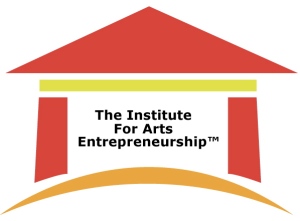
I’ve been doing some research lately on measures of the fiscal health of not-for-profit arts organizations, especially theatres. This got me thinking about the factors that support the fiscal health of individual artists and arts entrepreneurs. In a 2001 article, Mark Hager examines four measures of fiscal stability – of the ability of an organization to withstand the kinds of economic shocks we’ve experience over the last twelve months. (He adapted these from some earlier work by Tuckman and Chang.)
The four measures are: equity balance, revenue concentration, administrative cost, and operating margin.
How can we translate these four organizational measures into something useful for individual artists and arts entrepreneurs? Here is some of my preliminary thinking:
1. Equity balance. It’s always nice to have some money in the bank. From a practical standpoint, having a cushion in the bank can help support the artist in lean times. Building up that cushion during lean times is difficult but should be a priority during the fat times. I even think there’s a story about that somewhere regarding Joseph and a pharaoh’s dreams.
2. Revenue concentration. It’s much easier for an arts entrepreneur to withstand the sudden withdrawal of one client if they have more than one. So, if you’re counting on that one big commission, you may want to backstop that with several smaller commissions as well. Multiple revenue sources guard against permanent damage when any one of those streams dries up.
3. Administrative costs. Believe it or not, studies (Hager’s and others) indicate that it’s worth investing in the people and equipment necessary to run your arts-based business. Doing so has two positive effects on financial stability: 1) solid administrative capacity and 2) there’s somewhere to cut if the times get really really lean.
4. Operating margin. Pretty simple – don’t spend more than you earn. If you do, you’ll need to dip into that equity balance from item one, further diversify your revenue, or sell off the new copier/scanner you purchased to support your office operations.
It all sounds like common sense to me and I’ve been glad to find out that that common sense is actually backed up by empirical research!










I really like this entry. Number two is especially important, in my opinion. People get a little too comfortable and frivolous when times are good, but money comes and goes quickly. It is important to be frugal!
Thank you for your article! In my college class, we are also discussing finances as musicians. I like how you concisely list four general tips for staying ahead. Hope to hear more similar stories in the future!